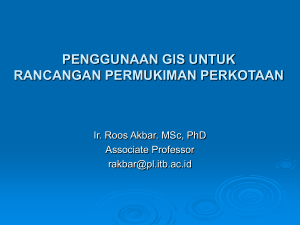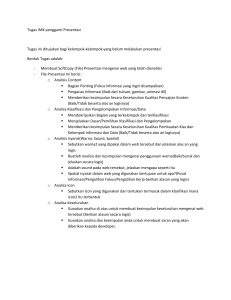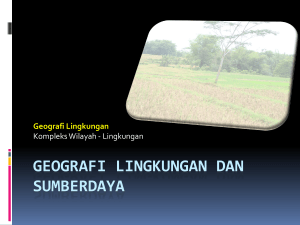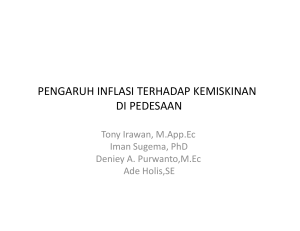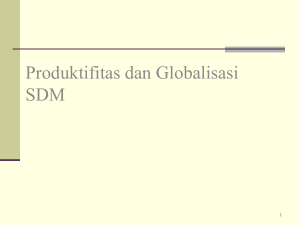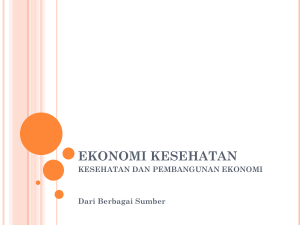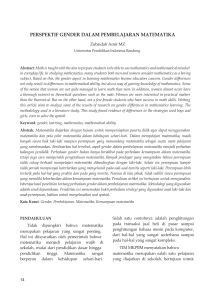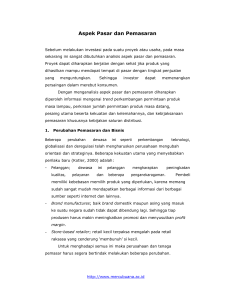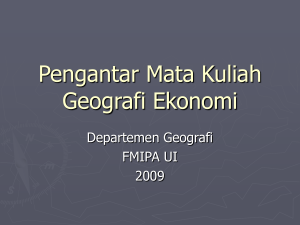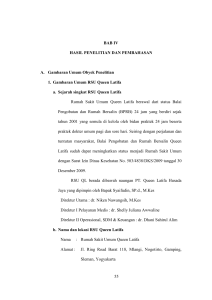Pemodelan Faktor Perekonomian di Jawa Timur - Repository
advertisement
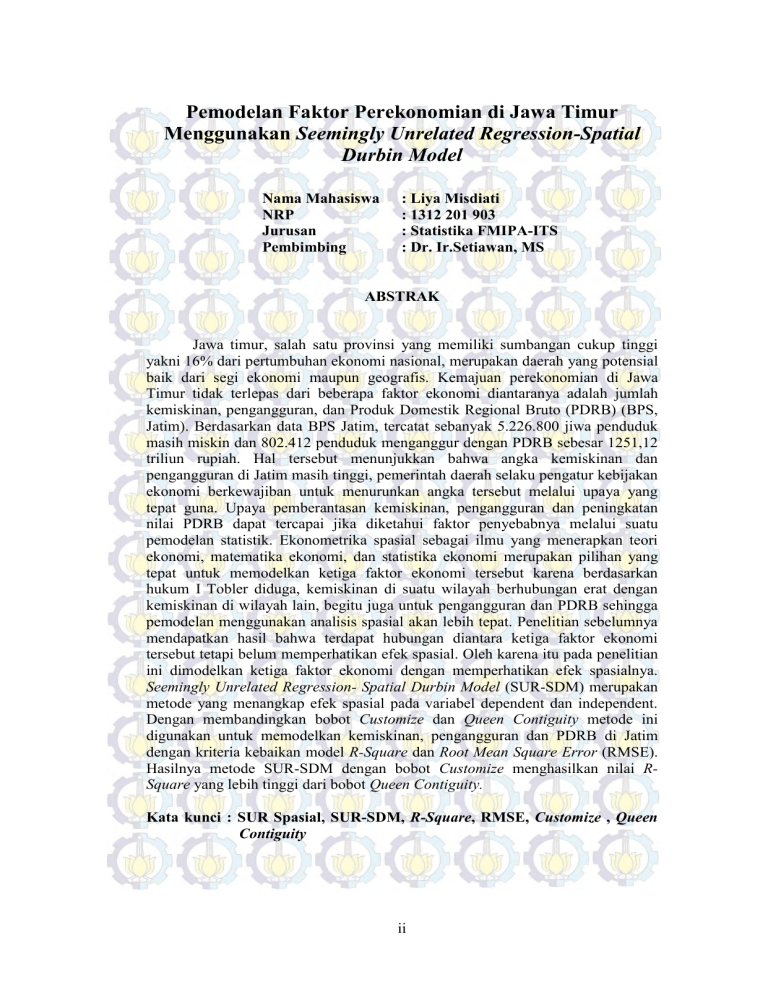
Pemodelan Faktor Perekonomian di Jawa Timur Menggunakan Seemingly Unrelated Regression-Spatial Durbin Model Nama Mahasiswa NRP Jurusan Pembimbing : Liya Misdiati : 1312 201 903 : Statistika FMIPA-ITS : Dr. Ir.Setiawan, MS ABSTRAK Jawa timur, salah satu provinsi yang memiliki sumbangan cukup tinggi yakni 16% dari pertumbuhan ekonomi nasional, merupakan daerah yang potensial baik dari segi ekonomi maupun geografis. Kemajuan perekonomian di Jawa Timur tidak terlepas dari beberapa faktor ekonomi diantaranya adalah jumlah kemiskinan, pengangguran, dan Produk Domestik Regional Bruto (PDRB) (BPS, Jatim). Berdasarkan data BPS Jatim, tercatat sebanyak 5.226.800 jiwa penduduk masih miskin dan 802.412 penduduk menganggur dengan PDRB sebesar 1251,12 triliun rupiah. Hal tersebut menunjukkan bahwa angka kemiskinan dan pengangguran di Jatim masih tinggi, pemerintah daerah selaku pengatur kebijakan ekonomi berkewajiban untuk menurunkan angka tersebut melalui upaya yang tepat guna. Upaya pemberantasan kemiskinan, pengangguran dan peningkatan nilai PDRB dapat tercapai jika diketahui faktor penyebabnya melalui suatu pemodelan statistik. Ekonometrika spasial sebagai ilmu yang menerapkan teori ekonomi, matematika ekonomi, dan statistika ekonomi merupakan pilihan yang tepat untuk memodelkan ketiga faktor ekonomi tersebut karena berdasarkan hukum I Tobler diduga, kemiskinan di suatu wilayah berhubungan erat dengan kemiskinan di wilayah lain, begitu juga untuk pengangguran dan PDRB sehingga pemodelan menggunakan analisis spasial akan lebih tepat. Penelitian sebelumnya mendapatkan hasil bahwa terdapat hubungan diantara ketiga faktor ekonomi tersebut tetapi belum memperhatikan efek spasial. Oleh karena itu pada penelitian ini dimodelkan ketiga faktor ekonomi dengan memperhatikan efek spasialnya. Seemingly Unrelated Regression- Spatial Durbin Model (SUR-SDM) merupakan metode yang menangkap efek spasial pada variabel dependent dan independent. Dengan membandingkan bobot Customize dan Queen Contiguity metode ini digunakan untuk memodelkan kemiskinan, pengangguran dan PDRB di Jatim dengan kriteria kebaikan model R-Square dan Root Mean Square Error (RMSE). Hasilnya metode SUR-SDM dengan bobot Customize menghasilkan nilai RSquare yang lebih tinggi dari bobot Queen Contiguity. Kata kunci : SUR Spasial, SUR-SDM, R-Square, RMSE, Customize , Queen Contiguity ii Economic Factors Modeling in East Java Using Seemingly Unrelated Regression-Spatial Durbin Model Name Student Identity Number Department Supervisor : Liya Misdiati : 1312 201 903 : Statistika FMIPA-ITS : Dr. Ir.Setiawan, MS ABSTRACT East Java, one of the provinces that have contributed quite high at 16% of national economic growth, is an area of potential both economically and geographically. Progress in East Java's economy can not be separated from economic factors including the amount of poverty, unemployment, and Gross Domestic Product (GDP) (BPS, East Java). Java Based on BPS data, there were 5.2268 million inhabitants are poor and unemployed with 802 412 inhabitants of 1251.12 trillion GDP. It shows that poverty and unemployment are still high in East Java, the local government as a regulator of economic policy are obliged to reduce these numbers through appropriate measures. Efforts to eradicate poverty, unemployment and an increase in the value of GDP can be achieved if known contributing factors through a statistical modeling. Spatial econometrics as a science that applies economic theory, mathematical economics, and economic statistics is the right choice for modeling the three economic factors such as under the law I allegedly Tobler, poverty in a region closely linked to poverty in other regions, as well as for unemployment and GDP so modeling using spatial analysis would be more appropriate. Previous studies have shown that there is a relationship between the results of the three factors of the economy but not the effects of spatial attention. Therefore this study modeled three economic factors to consider spatial effects. Seemingly Unrelated Regression- Spatial Durbin Model (SUR-SDM) is a method that captures the spatial effect on the dependent and independent variables. By comparing the weight of the Queen Contiguity and Customize this method is used to model the poverty, unemployment and GDP in East Java with goodness criteria models R-Square and Root Mean Square Error (RMSE). The result show that SUR-SDM with Customize weights produce higher R-square than Queen Contiguity weight. KeyWords : Spatial-SUR, SUR-SDM, R-Square, RMSE, Customize , Queen Contiguity iii
